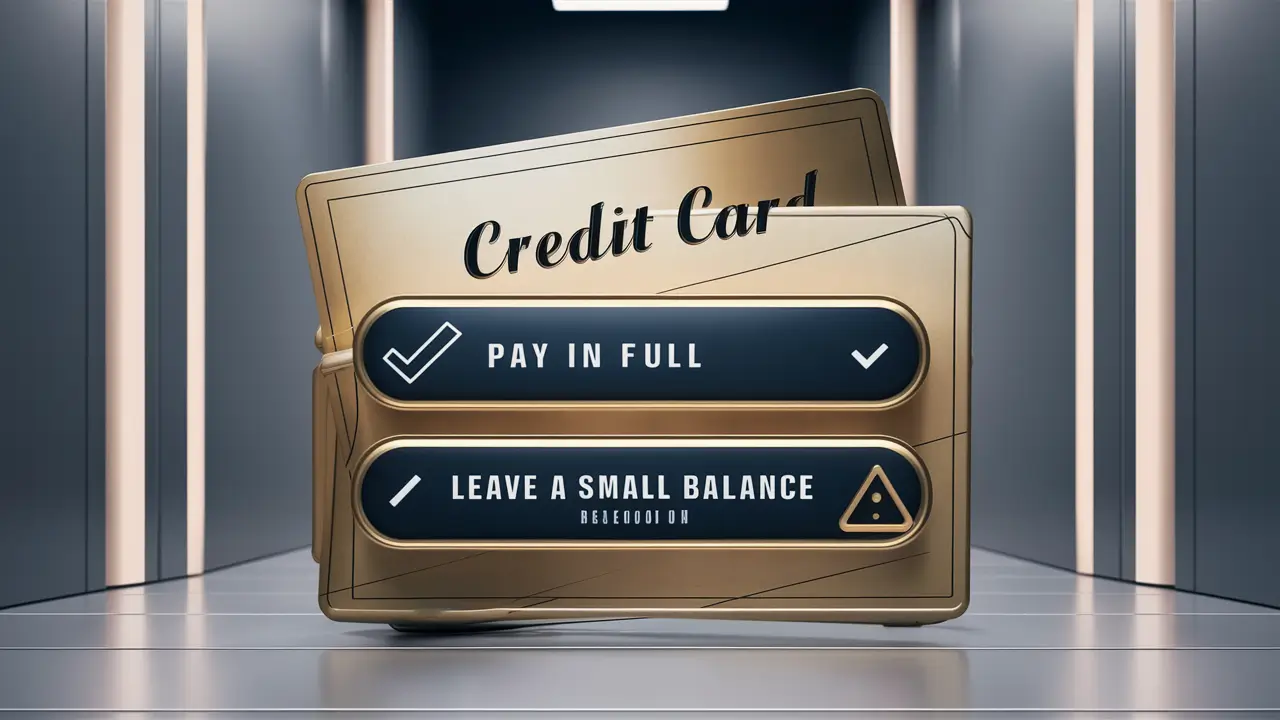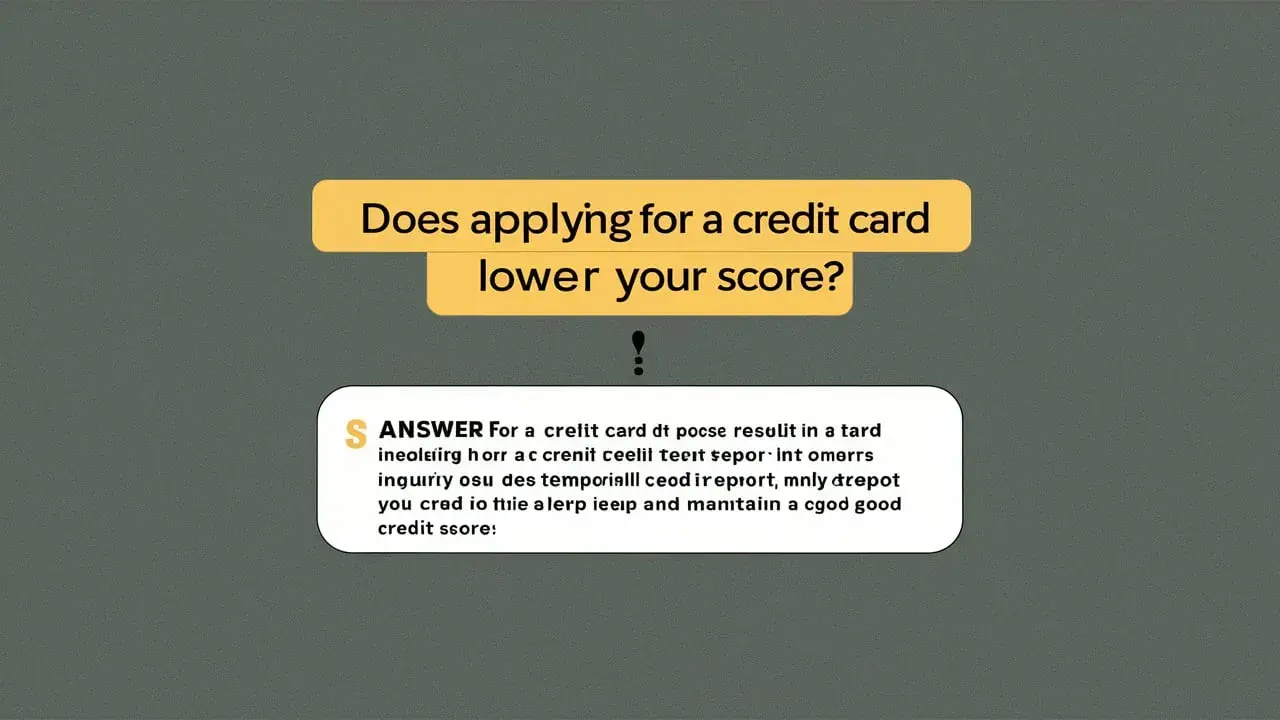-
Posted on: 25 Jul 2024

-
Paying off your credit card can feel like a financial victory, but a common question arises: should you pay the full statement balance each month, or is it okay to leave a small balance? The answer isn't as straightforward as it seems and depends on several factors, including your financial goals, spending habits, and understanding of how credit card companies operate. This comprehensive guide will delve into the pros and cons of each approach, helping you make informed decisions that benefit your financial health and credit score.
Understanding the Basics: Statement Balance vs. Current Balance
Before diving into the debate, it's crucial to understand two key terms:
- Statement Balance: This is the total amount you owe on your credit card as of the statement closing date. It includes all purchases, fees, and interest charges incurred during the billing cycle. Paying this balance in full by the due date prevents you from incurring interest charges on those purchases.
- Current Balance: This is the total amount you owe on your credit card right now. It includes everything in the statement balance, plus any new purchases or charges you've made since the statement closing date.
The key takeaway is that paying the statement balance in full avoids interest. Paying the current balance pays off everything you owe at that moment, but only the statement balance impacts whether you pay interest or not.
The Case for Paying Your Credit Card in Full Each Month
For the vast majority of people, paying off the credit card statement balance in full each month is the recommended and most financially sound strategy. Here’s why:
1. Avoid Paying Interest Charges
This is the most significant benefit. Credit card interest rates (APR) are often very high, sometimes exceeding 20% or even 30%. Carrying a balance, even a small one, means you'll be paying these exorbitant interest charges. These charges can quickly add up, making your purchases much more expensive than they originally were. Over time, interest can dwarf the original purchase amount.
Example: Let's say you have a $1,000 balance on a credit card with a 18% APR. If you only make minimum payments, it could take years to pay off the balance, and you'll pay hundreds of dollars in interest.
2. Improve Your Credit Score
While not directly, consistently paying your statement balance in full helps improve your credit score indirectly. How? By managing your credit utilization ratio. Credit utilization is the amount of credit you're using compared to your total available credit. Experts recommend keeping your credit utilization below 30%, and ideally below 10%. Paying off your balance in full ensures you consistently have low credit utilization, signaling to lenders that you are a responsible borrower.
Example: If you have a $10,000 credit limit and a $1,000 balance, your credit utilization is 10%. Paying off the full $1,000 each month keeps your utilization at that favorable level. If you consistently carry a $5,000 balance, your utilization is 50%, which could negatively impact your credit score.
3. Simplify Your Finances
Paying in full simplifies your financial life. You don't have to worry about tracking balances, calculating interest charges, or making multiple payments throughout the month. It provides a clear, predictable system for managing your credit card spending.
4. Prevents Debt Accumulation
Carrying a balance on your credit card is a slippery slope that can quickly lead to debt accumulation. The more you owe, the more interest you'll pay, making it harder to pay down the principal balance. By paying in full each month, you avoid this debt cycle entirely.
5. Peace of Mind
Knowing that you're not accumulating debt and paying unnecessary interest provides peace of mind. You can use your credit card responsibly and take advantage of rewards programs without the fear of falling into debt.
The Myth of Leaving a Small Balance: Why It's Generally a Bad Idea
There's a persistent myth that leaving a small balance on your credit card each month can somehow boost your credit score. This is generally false and can be detrimental to your financial well-being. Here's why leaving a small balance is usually a bad idea:
1. Paying Interest for No Reason
As mentioned earlier, carrying a balance, even a small one, means you're paying interest. There's no benefit to paying interest unnecessarily. It's essentially throwing money away.
2. Confused with Reporting Activity
The confusion likely stems from the fact that credit card companies need to report your activity to the credit bureaus. Paying the minimum payment (or a small balance) ensures they report some activity, but paying the statement balance in full also shows activity. As long as you're using the card and making any payment, your activity is reported.
3. Can Lead to Higher Credit Utilization (Over Time)
While a small balance might seem insignificant, repeatedly carrying small balances can slowly increase your overall credit utilization, especially if you're using multiple credit cards. This can have a negative impact on your credit score over time.
4. Encourages Overspending
Leaving a balance, even a small one, can create a mindset where carrying debt becomes normalized. This can lead to overspending and difficulty managing your finances in the long run.
Are There Any Situations Where Leaving a Small Balance Might Be Considered? (Rare)
There are extremely rare circumstances where leaving a small balance might be considered, but these are highly specific and should only be considered after careful evaluation:
1. Promotional 0% APR Periods:
If you have a promotional 0% APR period on your credit card (perhaps for a balance transfer or new purchase), you can technically carry a balance without incurring interest during that period. However, it's crucial to have a plan to pay off the balance in full before the promotional period ends. Otherwise, the accumulated interest can be substantial and retroactive.
Important Note: Even with a 0% APR, maintaining good credit utilization is still important. Aim to keep your balance below 30% of your credit limit, even during the promotional period.
2. Emergency Situations (Temporary):
In a genuine financial emergency, where paying the full statement balance is simply impossible, it's better to pay at least the minimum payment to avoid late fees and damage to your credit score. However, this should be a temporary solution, and you should prioritize paying down the balance as quickly as possible once your financial situation improves.
Important Note: Contact your credit card issuer to explore options like hardship programs or payment plans if you're struggling to make even the minimum payment. They may be able to offer temporary relief.
These situations are exceptions, not the rule. For most people, the benefits of paying in full far outweigh any perceived advantages of leaving a small balance.
How to Ensure You Pay Your Credit Card in Full Every Month
Making a habit of paying your credit card in full each month requires planning and discipline. Here are some strategies to help you succeed:
1. Create a Budget:
The foundation of responsible credit card use is a solid budget. Track your income and expenses to understand where your money is going. This will help you identify areas where you can cut back and allocate funds towards paying off your credit card in full.
2. Set Up Automatic Payments:
Automate your payments to ensure you never miss a due date. You can set up automatic payments for the full statement balance or the minimum payment, but the goal should always be to pay the full amount. Most credit card companies allow you to schedule payments online or through their mobile app.
3. Monitor Your Spending Regularly:
Check your credit card statements and online activity frequently to stay aware of your spending. This will help you catch any unauthorized charges and prevent overspending.
4. Use Credit Cards for Purchases You Can Afford:
Avoid using your credit card to purchase items you can't afford to pay off within the billing cycle. This is a surefire way to accumulate debt and incur interest charges. Treat your credit card like a debit card, only charging purchases that you have the funds to cover immediately.
5. Consider Balance Transfers:
If you're already carrying a balance on a high-interest credit card, consider transferring it to a card with a lower interest rate or a 0% APR promotional period. This can save you money on interest charges and make it easier to pay down your debt. Be aware of balance transfer fees.
6. Don't Max Out Your Credit Card:
Keeping your credit utilization low is crucial for maintaining a good credit score. Avoid maxing out your credit card, as this can significantly lower your credit score.
The Importance of Credit Monitoring
Regardless of whether you pay off your credit card in full or not (again, paying in full is almost always the better choice), you should regularly monitor your credit report and credit score. This allows you to identify any errors or fraudulent activity that could negatively impact your credit standing. Several services offer free credit monitoring, and you're also entitled to a free copy of your credit report from each of the three major credit bureaus (Equifax, Experian, and TransUnion) once a year at AnnualCreditReport.com.
Final Thoughts
The decision of whether to pay off your credit card in full or leave a small balance is, for most people, a simple one. Paying in full is almost always the best choice. It saves you money on interest, helps you maintain a good credit score, simplifies your finances, and provides peace of mind. While there are extremely rare exceptions where carrying a balance might be considered, these situations should be approached with caution and a clear plan for repayment. By adopting responsible credit card habits and consistently paying your statement balance in full, you can build a strong financial foundation and avoid the pitfalls of debt.











